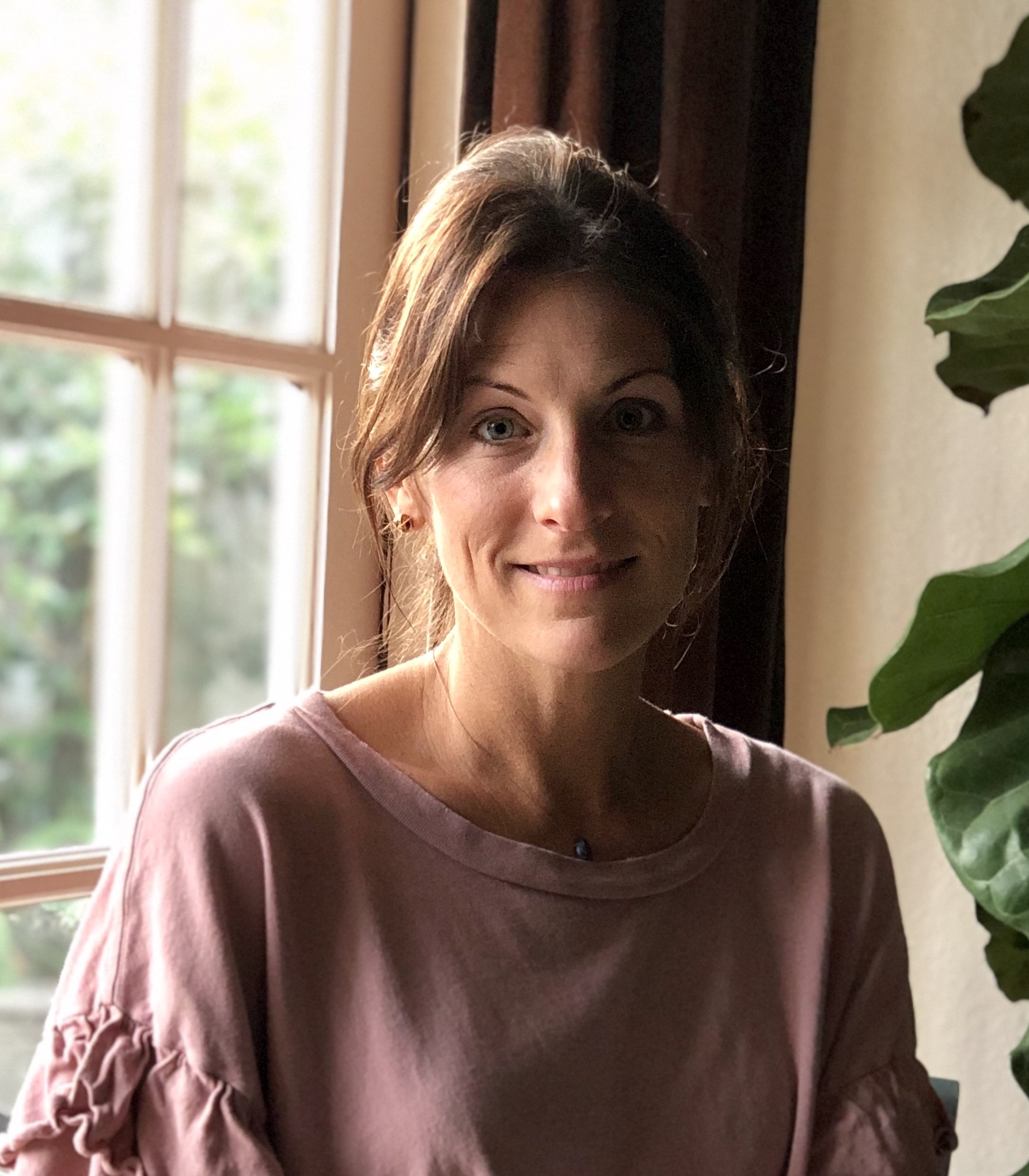
How A Year Of Lifestyle Medicine Empowered Me To Manage My Own Health
I’ve been invested in personal health since my early teens. Whenever I veered toward poor health (ahem, college), I always seemed to recenter, finding my way back to what I considered a health-conscious lifestyle. Then, somewhere north of my 40th birthday, I started feeling subtle physical changes and a heightened sense of anxiety about aging. I wasn’t sick by conventional medical standards; I just felt a bit off. With active, young daughters and a family love of the outdoors, It became my priority to age in a way that would allow me to keep up, maintain health, and avoid chronic disease.
During yearly check-ups, my primary never asked me about energy, diet, or lifestyle. And so it piqued my interest when I learned about Dr. Coeurlida Louis Ashby MD, DipABLM and her practice, Conscious Health. Dr. Ashby, a Yale-educated MD with 17 years of experience in Internal Medicine, practices Lifestyle Medicine.
“Lifestyle Medicine is a branch of medicine that focuses on using evidenced-based nutrition and other lifestyle measures, such as movement and sleep, to help prevent and reverse chronic lifestyle-related conditions.”
– Coeurlida Louis Ashby M.D.
“Lifestyle Medicine is a branch of medicine that focuses on using evidenced-based nutrition and other lifestyle measures, such as movement and sleep, to help prevent and reverse chronic lifestyle-related conditions,” says Dr. Ashby. A Lifestyle Medicine practice allows doctors to collaborate with individual patients to adjust their lifestyles, developing a sustainable, personalized healthcare trajectory.
Unfortunately, this type of medicine is often overlooked and rarely covered by traditional health insurance in the United States. By traditional healthcare standards, investing in prevention—as opposed to treating symptoms—is a choice rather than a necessity. But implementing Lifestyle Medicine has had a significant return for me, and it has helped expose potential illnesses lurking beneath the surface.
“Doing something good for our health before disease develops is the truest definition of prevention,” says Dr. Ashby. “By the time disease presents, it’s too late; it’s no longer about prevention. At that point, it becomes ‘disease management.’ Addressing lifestyle before disease is ideal to prevent disease.”
Although my journey with Lifestyle Medicine is still beginning, I’ve already gleaned a few key points after a year of implementing it and working with an empowering practitioner. Here are a few of the most significant changes I’ve made:
I’ve redefined what “healthy” means on the individual level.
During my first appointment with Dr. Ashby, I shared my lifestyle and eating habits, family health history, and what I hoped to get from my time with her. There was no rush or judgment as I shared about my healthy-ish lifestyle. I’d been incorporating whole food, probiotics, and grass-fed, organic meats in my weekly menu for years. I did my best to avoid processed foods while still splurging on an occasional bag of salt & vinegar chips and enjoying a nightly glass or two of wine. I was active daily. While I’d never been a great sleeper, I generally felt rested.
Dr. Ashby gave me a curated set of lab orders that would change my health trajectory forever—and for the better. At my next appointment, I learned I wasn’t the picture of health I’d imagined. Advanced blood work revealed I couldn’t hide from a family history of high cholesterol and that I was a carrier of the 9P21 Genotype, otherwise known as the “heart attack gene.” My focus going forward would need to shift to preventative heart health.
“While genetic predisposition is not a guarantee of disease, we know our lifestyle can impact the expression of our genetics,” says Dr. Ashby. “So knowing our genetics on certain issues gives us relief or guidance to remain intentional with our lifestyle habits.”
Each of us has a unique genetic makeup, and my health could no longer come from generalized terms of what society considered a healthy lifestyle. That knowledge, while slightly scary initially, helped me embrace what we now knew was under the surface. As opposed to debilitating me, I found the new insight empowering, and I could directly confront it before it was too late.
I worked with my body to find the best foods for me.
In American culture, we tend to hold some generic food rules sacred—e.g., saturated fats and highly processed foods can cause obesity and heart disease; limiting simple carbs aids in weight loss; avoiding animal products can be healthier for us and the planet. And while many of these notions are admirable (and hold truth), knowing my genetic footprint and what was happening to my body made a world of difference in discovering specific foods to include in my diet to benefit me.
I’d assumed that my diet was good as long as I was eating whole foods and limited amounts of grass-fed, organic meats. Ultimately though, I wasn’t addressing my elevated cholesterol, nutritional deficiencies, and risk of heart disease. Lifestyle Medicine taught me that a diet is about self-discovery, using diagnostics to pinpoint my body’s needs and creating a sustainable and effective way to address them.
“Even when we feel good and think our diet might be great, test results may surprise us.”
– Coeurlida Louis Ashby M.D.
“Even when we feel good and think our diet might be great, test results may surprise us,” says Dr. Ashby. “With our nutritional system these days, many of us who are doing our best with nutrition and lifestyle may still have many nutritional deficiencies.”
Testing exposes these specific deficiencies and needs, she explains, allowing us to create personalized diets. Dr. Ashby helped me create a simple diet plan focused on specific therapeutic foods tailored to my needs. Given my genetic factors and test results, aiming for a plant-based Mediterranean diet would serve me well now and as a future sustainable diet guideline.
I learned supplements can offer added nutrition.
Dr. Ashby encouraged me to think of my body as having nutritional tanks. When a tank is extremely low, it’s almost impossible to fill it up with just the food you eat, especially considering deficiencies in the modern food system.
“While nutrition remains the foundation for healthy living, supplementation is best used to fill in the gaps,” says Dr. Ashby. Supplementation in conjunction with diet fills those low or empty tanks faster.
“It is important to choose supplementation wisely, from reputable sources and with the guidance of a professional, if possible,” she says. Clinician-researched and scientifically backed supplements are ultimately better for you and your wallet; otherwise, you could be paying for supplements that aren’t effective or are harmful to your body. That’s where testing comes in.
“It is also important to test sometimes after supplementation,” says Ashby, “especially if the item being supplemented can become toxic in high doses, for example, vitamin D or iron.”
Don’t abandon conventional tools and systems.
We are fortunate, especially in the United States, that medical advancements and technology allow us access to preventive, acute, and emergency healthcare. Dr. Ashby encouraged me to continue seeing specialists, getting pap smears, and scheduling those thyroid ultrasounds and mammograms.
The Lifestyle Medicine approach, she says, is meant to enhance conventional healthcare, addressing what is lacking in the current disease-focused model of care, which, sadly, often leaves doctors little time to explore a patient’s lifestyle.
“Lifestyle Medicine is a complement to conventional care, it does not replace it,” she says. “Even with the best health practices, diseases can still occur. Routine health checks for disease detection remain important.”
Stay active and rested.
In addition to dietary changes, Dr. Ashby encouraged me to keep up my exercise routine to keep my cardio health in check. My weekly long-distance nature runs with girlfriends also help manage stress and cultivate social engagement—two additional pillars of Lifestyle Medicine.
Likewise, I’m working on getting better rest and quality sleep. According to the American College of Lifestyle Medicine, “Improving sleep quality can improve attention span, mood, insulin resistance and can reduce hunger, sluggishness and more.”
Remember that optimal health is not static.
Upon reviewing my follow-up blood work nine months into my new routine, my cholesterol had dropped quite a bit, and I was able to come off of almost all supplements because I had refilled my nutrition deficiencies (though I’ve stayed on some that I like). I’d also increased my exercise and started focusing on sleep quality. Dr. Ashby released me from her regular care, encouraging me to maintain the plan we’d come up with and push for better results at my one-year follow-up. She also reminded me that good health is a journey, not a destination. We must remain conscious of phases and stages and consider daily exposures that can profoundly affect our cells.
“Good health is a journey, not a destination. We must remain conscious of phases and stages and consider daily exposures that can profoundly affect our cells.”
“Our bodies are constantly working to bring us back towards balance. Health is not a static state; the process continues daily,” she says. “It’s an evolving dance over time and with nature, even our mindsets can affect our cells and health.”
To find a Lifestyle Medicine practitioner near you, visit the Lifestyle Medicine website.
Randi Donahue is a freelance writer who lives on the Gulf Coast of Florida and is fortunate to live right next to a glorious nature preserve and a few miles from a white sandy beach. She and her family are passionate about nature, health & wellness, and sustainable living and believe the path to a healthy and prosperous life requires authenticity, kindness and a whole lot of fresh air.




